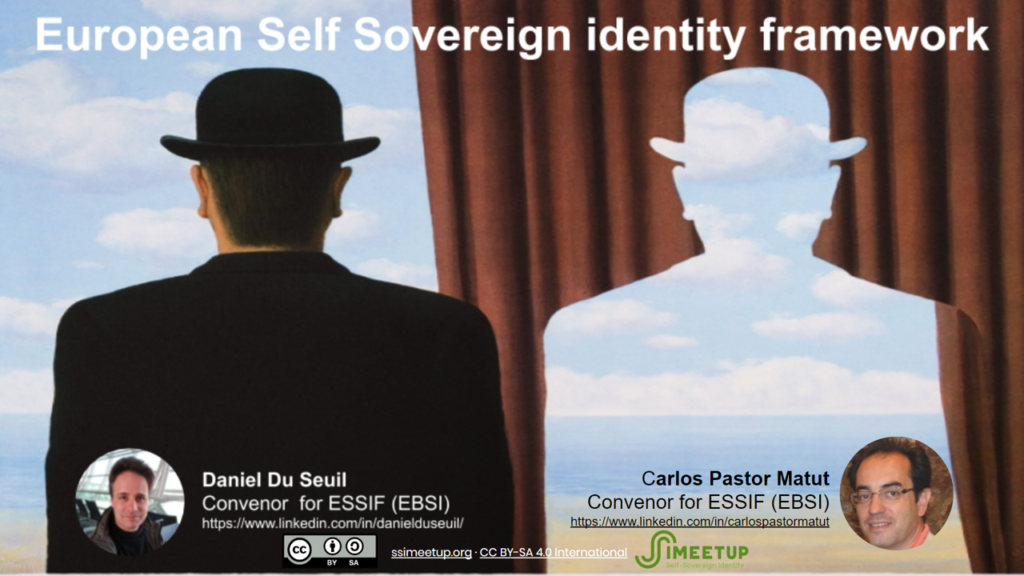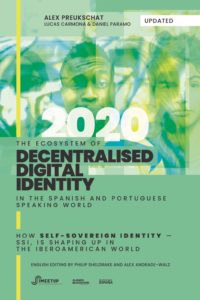Understanding the European Self-Sovereign Identity Framework (ESSIF) – Daniël Du Seuil and Carlos Pastor – Webinar 32

Daniël Du Seuil, Programm manager and blockchain architect with the Flemish public service, and Carlos Pastor, from BME in Spain, give an overview of the vision, objectives, and approach of the European Self-Sovereign Identity Framework (ESSIF).
Video recording:
Slideshare presentation:
How can you use these slides and knowledge?
This content is shared with a Creative Commons by Share Alike License. This allows you to reuse the powerpoint slides we are sharing here to build your own SSI communities around the globe. You only need to credit SSIMeetup and the invited guest of the day and share whatever you produce with the same license. Please read the license for full details.
Download the full presentation “Understanding the European Self-Sovereign Identity Framework (ESSIF)” from Google Slides.
Interested in collaborating or sharing?
Please get in touch via the contact form or one of the social media channels and we will find something interesting to do together or support you.
The European Union’s main aim is, as stated in article 3 of the Treaty of Lisbon (2007, https://eur-lex.europa.eu/eli/
In the current times, the mentioned values and goals of the EU need not only to be pursued in the analog world but also in the emerging and expanding digital world. In a world which is overall becoming more insecure, competitive, and authoritarian, Europe needs to project its core values in the digital world – for its own citizens and beyond. Just as the GDPR has a global signaling and role model function, we need a new model of digital identity based on European values to work across the globe. This model will not only protect and empower the citizens and organizations but also allow more efficient interactions and new business models.
The new emerging technologies and concepts like blockchain and self-sovereign identity hold the promise to construct a new model of digital identity and the EU member states want to take the lead in this disruptive approach. In 2018, 27 EU Member States, Norway, and Lichtenstein signed a deceleration creating the European Blockchain Partnership (EBP). The EBP assists the European Commission in establishing a European Blockchain Services Infrastructure (EBSI). In the short term (2019-2020), the main objective is to start the operation of EU-wide Blockchain-based services and to promote the use of the EBSI in “virtually” every domain of the public sector able to benefit from Blockchain technology. The EBSI has a particular focus on cross-border public services. In 2018, the EBP identified a set of Use-Cases to be implemented on the EBSI one of these important use cases is the European Self Sovereign Identity Framework (ESSIF). The EBSI will implement a generic Self-Sovereign Identity capability that is integrated and interoperable with existing building blocks and legal frameworks like eIDAS and GDPR.
The ESSIF will be focussing in the first stage and implementation on the public services/member states and the EBSI use cases that are now being developed (diploma and notarization). But a much larger scope and ambitions lie in the near future. Public-private interactions could also benefit from this concept and the ESSIF project wants to accelerate and stimulate an emerging market on SSI solutions/concepts with the trust and help on standardization/


